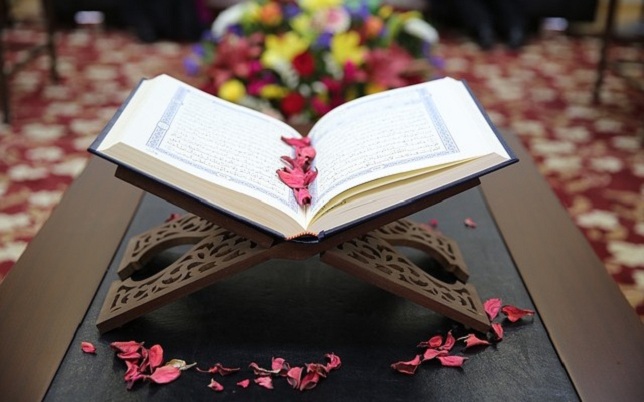The All India Muslim Personal Law Board is a representative body of all the important religious, political and cultural organisations of the Indian Muslims.
Being a non-political organisation it also enjoys the support of an overwhelming majority of the representatives of Muslims in various national political parties, Muslim legislators, scholars, lawyers etc.
Thus All India Muslim Personal Law Board is the only organisation that can authoritatively speak for all the Indian Muslims, belonging to all sects and schools, barring, of course, a few individuals who have no following whatsoever among the Muslim masses.
Related: Distribution of Muslim Population in India
No Change in Muslim Personal Law Ever
The Board has no apologies, no excuses to offer, nor to explain away or make acceptable to others what has been laid down by the Quran and the Prophet in regard to Muslim Personal Law and what has been so consistently accepted and adhered to by the Muslims.
All India Muslim Personal Law Board’s stand is clear and unequivocal: no change in the Personal Law of Muslims.
There are many reasons why Muslims cannot agree to any change in their Personal Law and there are also reasons why Hindus do not appreciate the Muslim view-point.
One of the primary reasons for non understanding Muslim view’s is the utter lack of comprehension of by Hindus the fine distinction between the concept of revealed law and modern legal philosophy which is crucial in understanding the reason for reluctance of the Muslims to any change in their Personal Law.
Related: Islamic beliefs about Holy Quran
Foolish Objections on Muslim Personal Law
Some people hold the view that the Muslim Personal Law is stagnant, glorious for its time, a handicap for ours, and hence it must change like other laws.
Changes in human understanding, progress in standards of civilization, which is considered to be linear in time, and advances in technology are all supposed to be genuine pressures on the Shariah to change or to give up those parts which do not seem to rhyme with the changing times.
Related: Why no human can compete with Quran?
Human Nature has Remained Unchanged
But what has really changed? Essential human nature, its motives and drives, its emotions and desires have remained virtually unchanged throughout the ages.
Technology has certainly advanced and some ways of looking at the world have altered but no new definitions and concepts like ‘cruelty’, ‘civilized’, ‘justice’, ‘equality’ have emerged to command universal adherence.
Man’s lusts and fears, hopes and anxieties, loves and hates, aspirations, yearnings and longings remain what they have always been.
Similarly, the idea that something which evolves later in time is necessarily superior to that which preceded it is also untenable.
The only absolute and universal criteria can be those given by God, the All-Knowing, whose words are above any change.
Related: Why only Islam can unite people of the world?
Stability of Law vs Change in Law
Experience has shown that the conflicting demands of law—stability and change—have never been reconciled.
The law that is based purely on reason carries the seeds of its own destruction, for human reason is fallible and erring.
The tension caused by the demands of stability and change calls for balance and harmony which are conspicuous by their absence in the modern laws of the West. They lack balance and stability since they have to serve the interest of an ever-changing society.
Related: Why Islam is the most rational religion?
Divine Laws Handle Changing Times
Divine law is distinct from human laws, which are always subject to change and correction; in that it has its own method and ethical norms of good and bad which keep social change itself within bounds. Divine Laws controls the society and are not controlled by it.
Undoubtedly it is eternal and immutable for the simple reason that it has to exercise its controlling force on the society.
As a matter of fact it has kept the social fabric of Islamic society compact and secure throughout the last fourteen hundred years.
Related: Prophet Muhammad gave best religion and laws
Objective of Divine Law
The objective of Divine Law is to give rise and guide a moral-spiritual society. It has accordingly established, in the words of Hamilton A. R. Gibb,
“Norms for all Muslim institutions and societies, which have ever since remained the sheet-anchor of Muslim culture through the many and terrible vicissitudes of later centuries; it expressed and went far to creating a united Muslim community, in spite of political fragmentation and conflict;
and it is still, notwithstanding all the criticisms of Muslim modernists and reformers, the sole embodiment of what would otherwise be merely formal unity of faith among all Muslims.”1
Such a law has necessarily to be immutable yet it contains broad principles that admit of interpretation which can accommodate changes in life.
Related: What is Islam?
Islamic Laws Fulfill All Needs of Modern Life
Such is the capacity of Islamic Laws to reconcile stability with changing need of life that the Branch of Oriental Statutes of the International Congress of Comparative Law held in Paris on the 7th of July, 1951, and attended by eminent scholars and professors of law from both the East and the West, adopted the following resolution:
“The delegates, being interested in the problems brought about during the ‘Week of Islamic Law’ and in the discussions which demonstrated the indisputable value of the principles of Islamic Law, and the fact that the variety of schools within this great juridical system implies a value of juridical elements and remarkable techniques, allowing this law to respond to all needs of adaptation required by modern life” 2
Related: Prophet Muhammad was far ahead of his time
No Interference in Islamic Laws by Anyone
Therefore, let it be understood clearly that the overall scheme of the Shariah and its various specific provisions for meeting the changing needs of life are determined by the way Islam resolves the perennial question of tension between the individual and society, in accordance with its own objectives and within its own framework. Islamic Laws need no outside interference.
1. Hamilton A. R. Gibb, Studies on the Civilization of Islam. London, 1962, p. 200
2. Islamic Studies Quarterly. Vol. XXIII, No. 4 (1984), p. 387 (cited from Law and the Problems of Stability and Change by Dr. M. Muslehuddin).
Recommended:
- Quotes of great non-Muslims on Islam and Prophet Muhammad
- Huge number of educational institutes by Muslim rulers of India
- Huge number of hospitals by Muslim rulers of India

